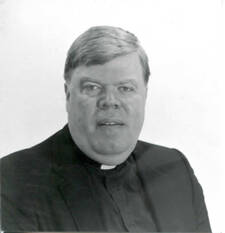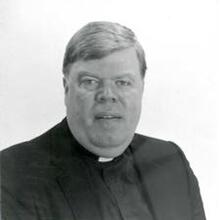The Netherlands prides itself on pioneering medical euthanasia. In 2001 it became the first nation to legalize the practice. The campaign to introduce euthanasia featured images of serene cancer patients calmly bidding farewell to life, surrounded by adoring children, grandchildren and the occasional great-grandchild in a pinafore. But as the number of euthanasia deaths rose annually, psychological factors rather than physical pain became increasingly prominent as a justification for lethal injections.
Dedicated to expanding the reach of euthanasia, the Dutch Right to Die Society founded the End-of-Life Clinic in 2012. With typical Dutch efficiency, the clinic uses mobile medical units to visit the homes of citizens who are considering the euthanasia option. The housebound, the elderly and the disabled—anyone who might find it difficult to visit a medical office—can now have the benefits of euthanasia delivered on the living-room couch. In a society where physician house calls are rare, there is now one house call that is only a convenient phone call away.
Recently published in the Journal of the American Medical Association, “A Study of the First Year of the End-of-Life Clinic for Physician-Assisted Dying in the Netherlands” provides a disturbing portrait of the operation of the clinic in its first year (2012-13). The clinic gave lethal injections to 162 out of the 645 people who requested one. The majority of the euthanized suffered from physical diseases, but not all were chronic. One otherwise healthy patient had tinnitus. A minority perished on other grounds. Six people were killed for psychological reasons; 21 for cognitive decline; 11were killed simply because they were “tired of living.” Many of those tagged with “cognitive decline” suffered from dementia, which raises the question how these patients could possibly have given informed consent. The new category of “tired of living” aroused the greatest alarm among the clinic’s critics. Almost certainly, some of these patients suffered from unsuccessfully treated depression. Ennui, once a leitmotif in moody French novels, has suddenly become a ground for execution.
The End-of-Life Clinic’s record reflected the broader national practice of euthanasia. According to official Dutch statistics, in 2013 there were 4,829 cases of legal euthanasia, of which 42 were due to psychological reasons and 97 to cognitive decline.
From a consumerist perspective, the clinic’s euthanasia program has been a striking success. To meet demand, the clinic expanded its original 15 mobile units to 39. There is a waiting list of 100 patients requesting a lethal injection on psychological grounds alone.
Even erstwhile supporters of euthanasia were alarmed by the portrait of euthanasia practice sketched in the clinic report. A prominent supporter of the original 2001 law, the ethician Theo Boer, now condemns the practice. He criticized the growing numbers of euthanasia cases and the standards used to implement it. “Cases have been reported in which a large part of the suffering of those given euthanasia or assisted suicide consisted in being aged, lonely, or bereaved.” Boer contests the illusion that this expanding recourse to euthanasia respects the patient’s freedom. “Pressure from relatives, in combination with a patient’s concern for the well-being of his or her loved ones, is in some cases an important factor behind the euthanasia request.” Coercion now extends to the medical profession itself. “A law that is now in the making obliges doctors who refuse to administer euthanasia to refer their patients to a willing colleague. Pressure on doctors to conform to patients’ (and in some cases relatives’) wishes can be intense.”
Originally a call to compassion for patients suffering intractable pain in the last days of a terminal disease, the euthanasia juggernaut has slowly become a eugenic campaign to eliminate the demented, the seriously disabled and the severely depressed. The burdensome are to be jettisoned, preferably through their own carefully solicited consent. As the clinic’s brisk business indicates, the net for potential beneficiaries has now broadened to include those who are just “tired of living”—which could include many of us on a particularly grim day.
This is not about freedom. This is not about palliative care. It is about a steely utilitarianism and nihilism conquering the advanced outposts of ex-Christendom.








